The scene is set. The curtain rises. A celebratory space is revealed, reminiscent of a palace ballroom.
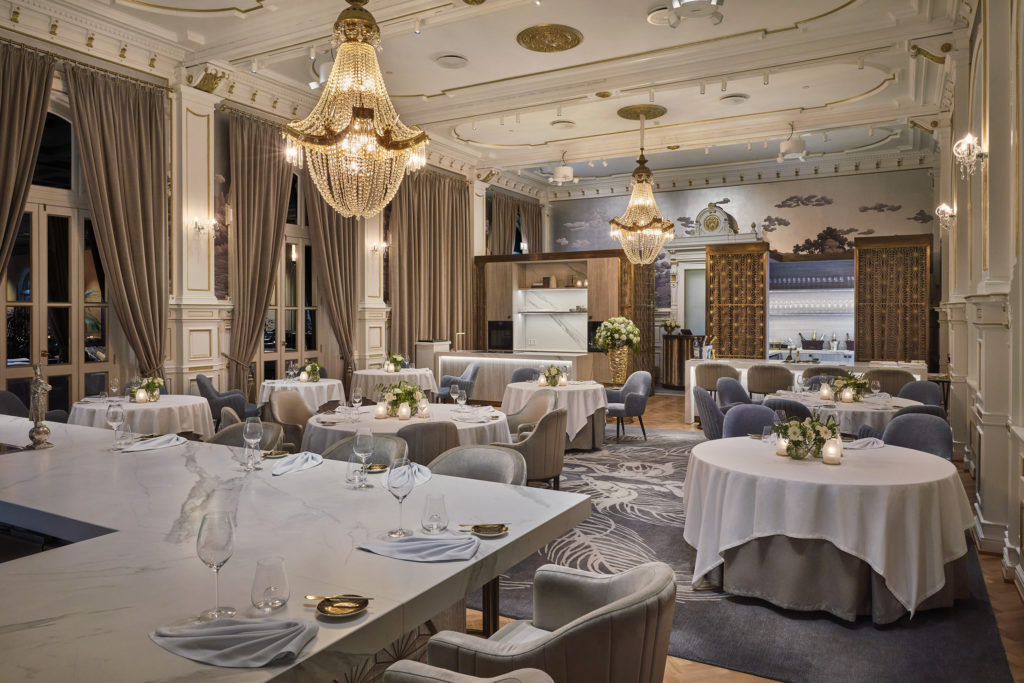
Beautiful arched mirrors dominate the stage, with golden cornicing and wallpaper depicting scenes from faraway lands. The marble top counters are lined with glistening bottles of Champagne. Elegant glasses wait patiently on white tablecloths, twinkling in the light of the opulent chandeliers.
This is Speilsalen; Britannia Hotel’s Michelin-starred restaurant, serving a symphony of taste and experience.
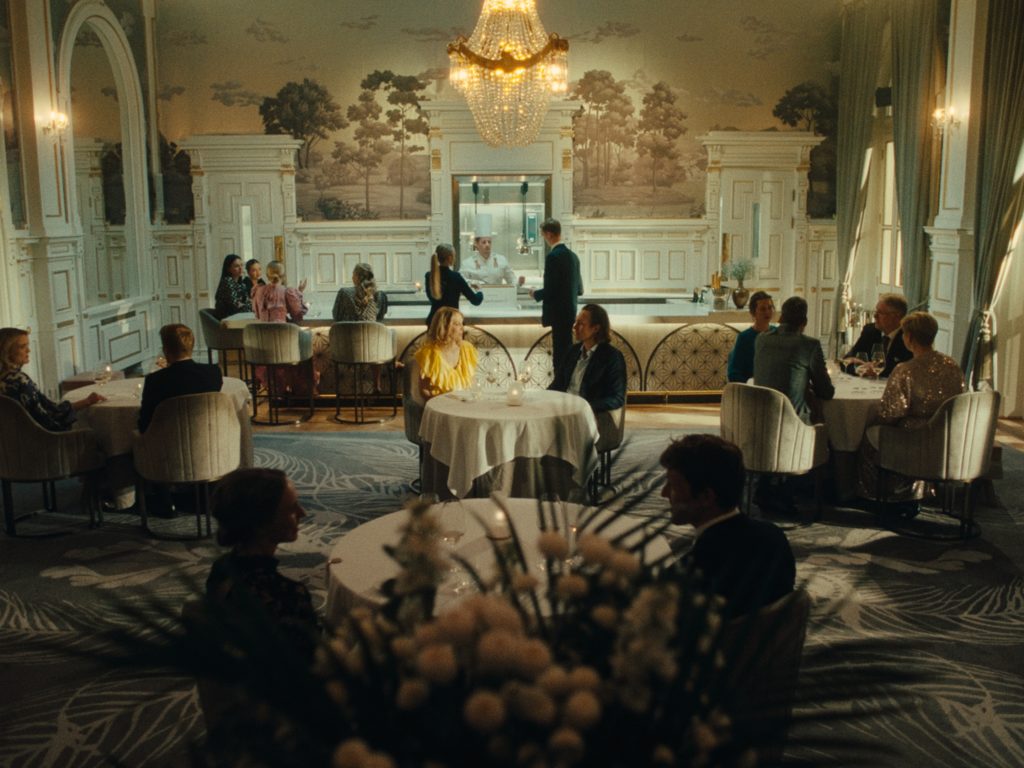

The Year 1896
Read more about Fridtjof NansenDating back to 1896, this effervescent room has played host to events of immeasurable significance. It was here that the famous Norwegian explorer Fridtjof Nansen gave his presentation to the Royal Geographical Society of the world, upon his return from the Arctic.
Nansen’s revelations on that day, about the unprecedented experiences he and his team encountered on their travels, was to be the first of many epic performances to take place within these mirrored walls.
Today, Speilsalen (‘The Mirrored Hall’) is home to the hotel’s fine dining restaurant of the same name. For the first time in its history, Speilsalen is exclusively reserved for gastronomic journeys which reflect both the chefs’ culinary craft and the room’s glorious past.
Head Chef Håkon Solbakk delivers the symphony in three spellbinding acts.
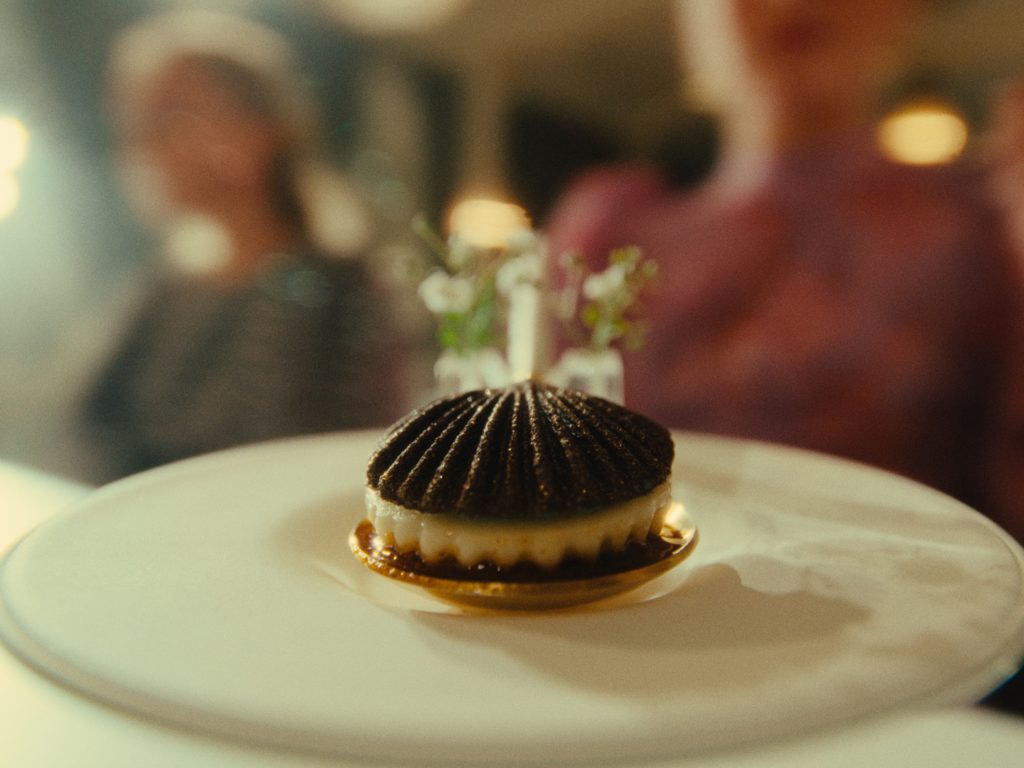
ACT I
The first act, Humble Beginnings, is a celebration of the finest raw ingredients from the coast of Trøndelag. Scallop, crab, langoustines and shrimp. Shellfish which has slowly matured in the cold waters of the Trondheim Fjord and the ocean beyond.
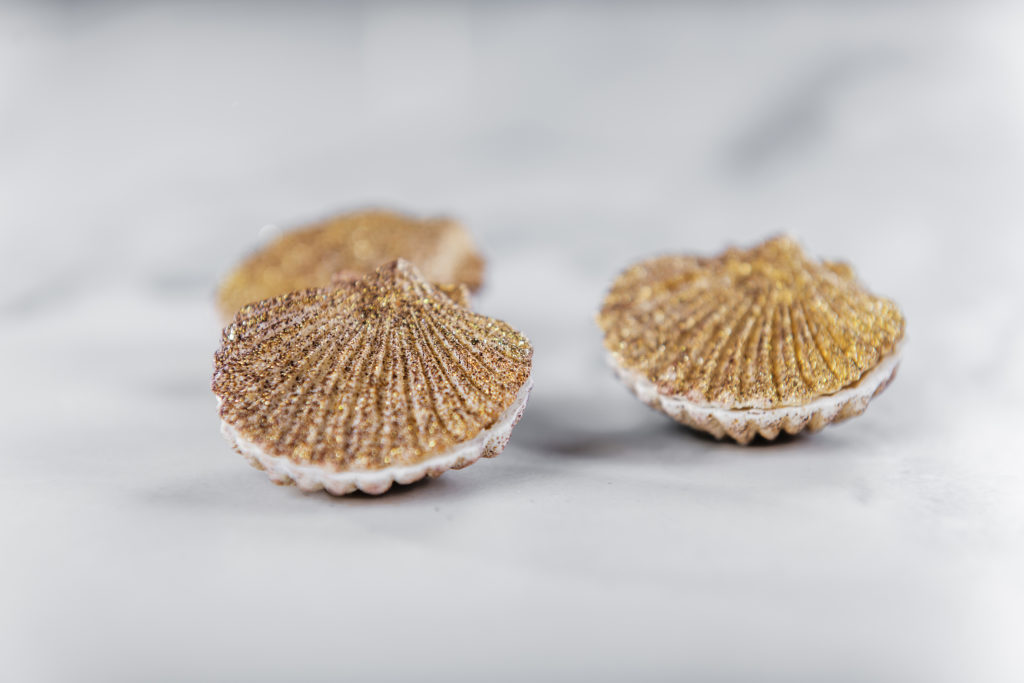
It is a curtain-raiser in which seafood takes centre stage. Short-travelled ingredients, harvested from pristine waters, by sustainable techniques. Trøndelag is internationally renowned for its incredible seafood because the flavour develops in intensity within the shell, as the crustaceans battle to survive the cold conditions. This flavour profile allows the chefs at Speilsalen to start the service with ‘snacks’; artistic creations, bite-sized works of art, each encasing an ocean of taste.
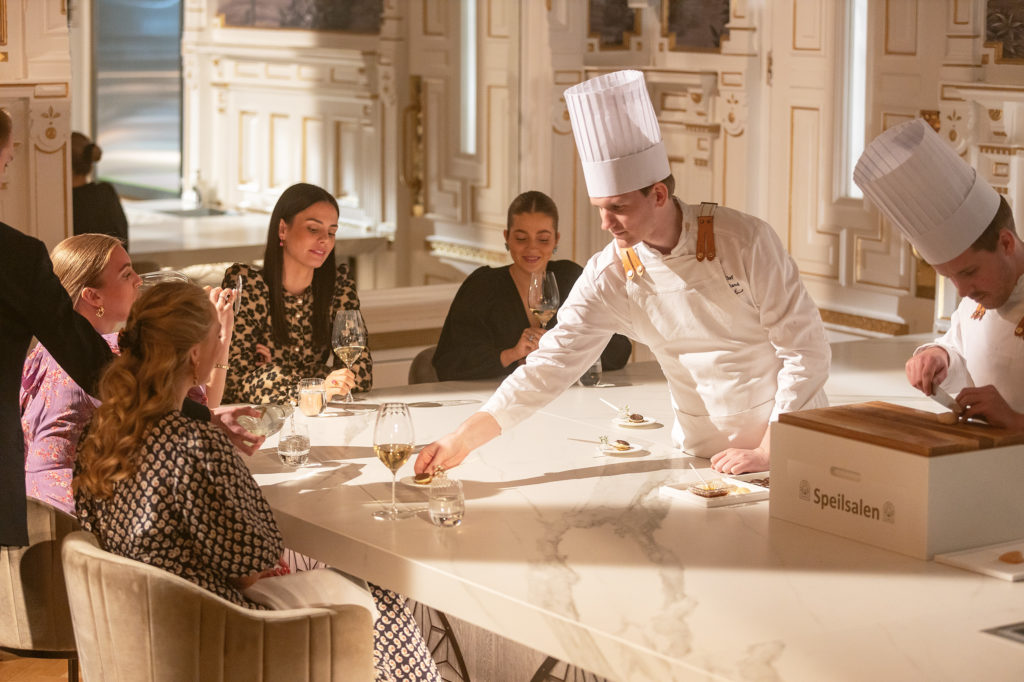
Diners at Speilsalen are seated on elegant round tables in the centre of the room. Or they may choose to dine in front of the action at Chef’s Table and watch the construction of these mini masterpieces firsthand. The audience can also visit the caviar bar, the first of its kind in Norway. A concerto of different types of caviar, all with a distinctive character.
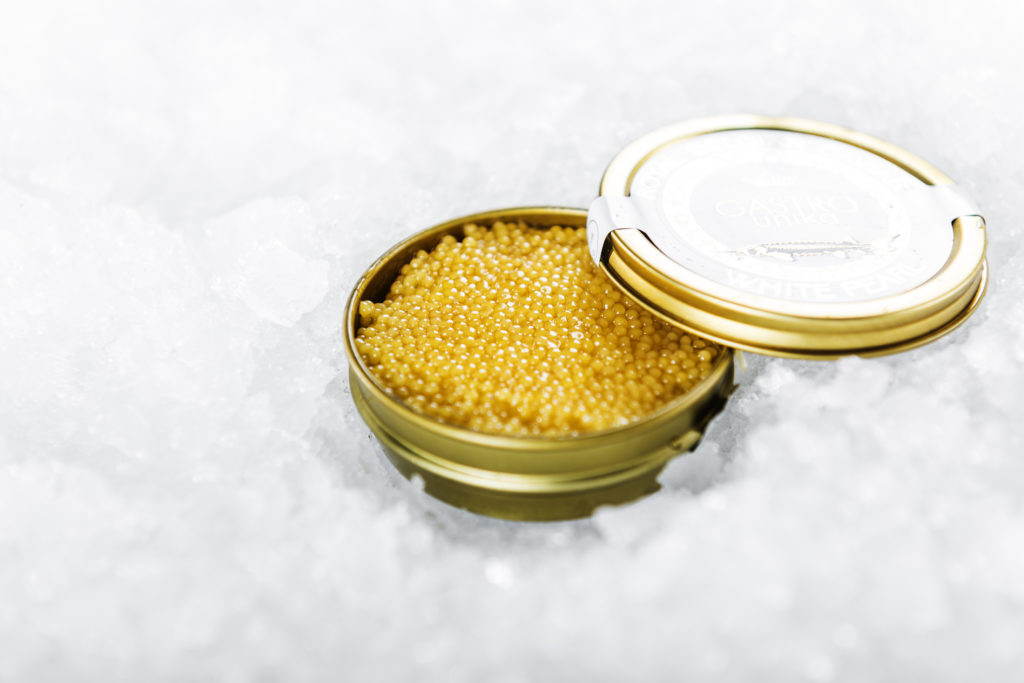
And because you are in the capable hands of a Krug Ambassador, you can be sure that Head Sommelier Nikolai Haram Svorte will conduct you through proceedings with the finest bubbles, perfectly chosen to match this epic beginning.
ACT II
Chef Solbakk’s menu is a predominately seafood affair. Inspired in no small part by his upbringing in rural North Trøndelag, the Head Chef’s preference is always to work with short-travelled ingredients, showing the utmost respect for the raw materials of his craft.
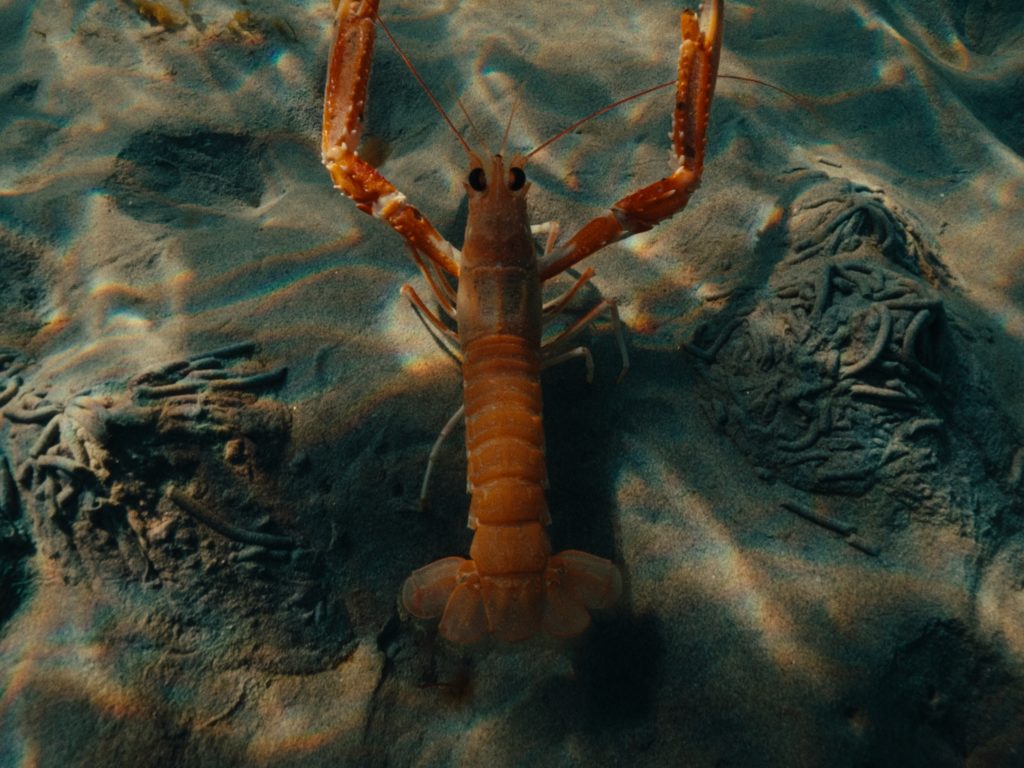
In Trøndelag, the main protagonists are always going to be from the water, although the deep dark forests also provide for some enchanting characters on the plate. In the second act, we are treated to big performances from seasonal Norwegian players, with exotic cameos from Asian ingredients and techniques.
The epic seascape of the Norwegian coastline is home to many characters and halibut, not often off the menu at Speilsalen, is one of the grandest. A much-storied fish, which has taken on many roles and occupied the mind of many a fisherman over the years.
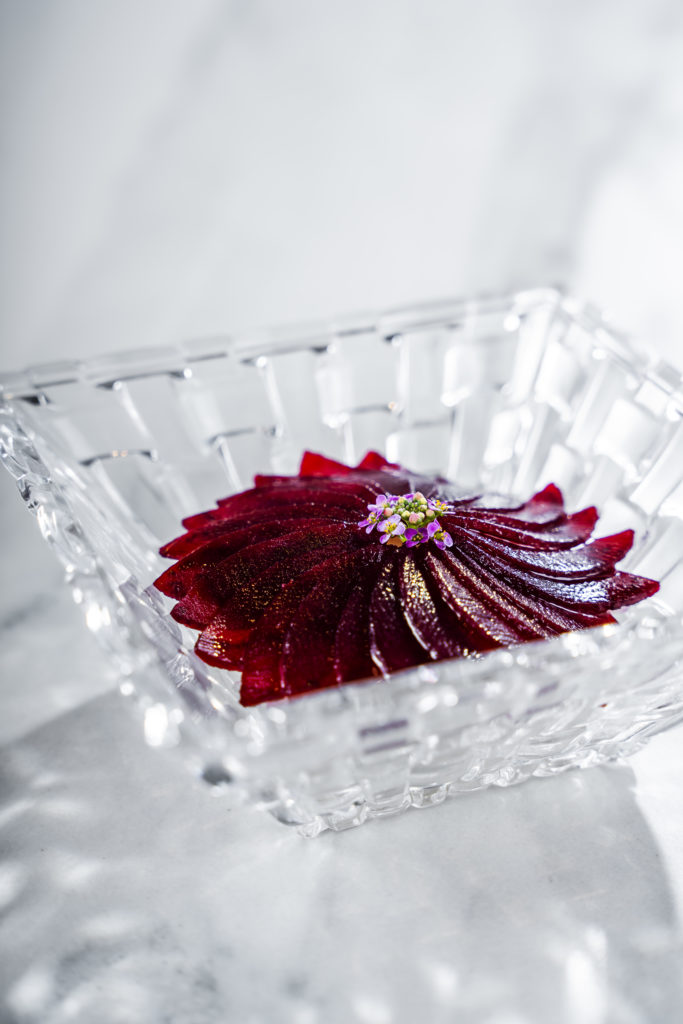
“Princess”, “queen”, “the holy God-fish” or even “the virgin”; there is something enigmatic about the pursuit of this giant which gets the imagination racing. Legend has it that halibut was the personification of Balder, the Norse God known for strength and an inability to be hurt. Arrows bounced off him, a sentiment shared by frustrated fishermen, although in the realms of the deep ocean it is a ‘her’ that they are intimidated by.
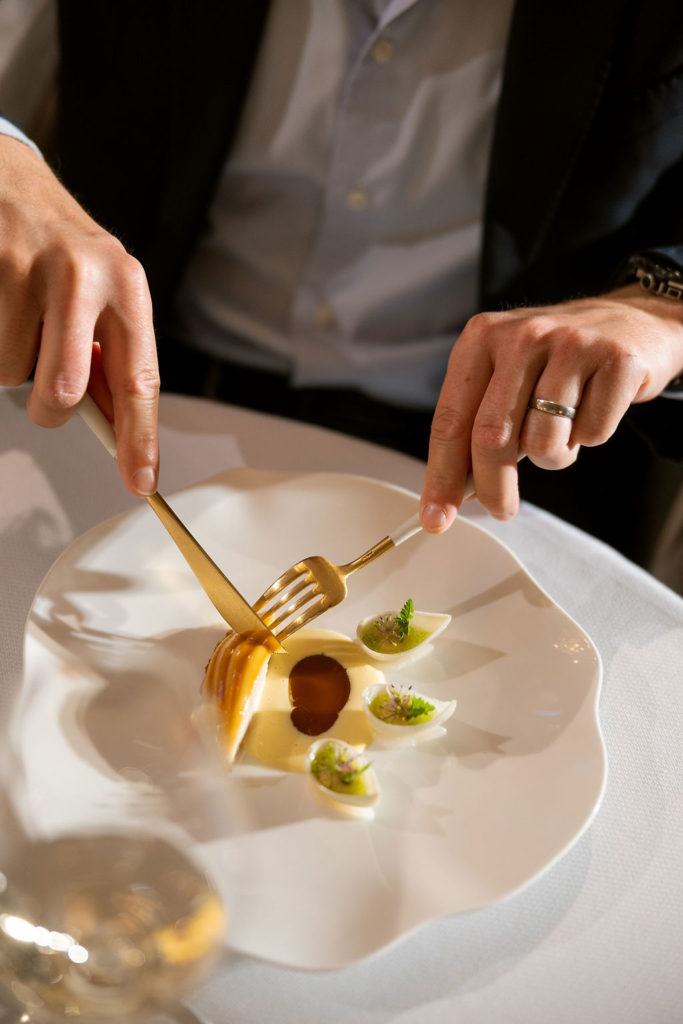
The female halibut can grow to monstrous proportions, reaching up to 3 ½ meters in length, weighing in at a whopping 300 kilos. Large bones, rich tasty meat and easy to gut, cut and clean. The Norwegian Atlantic halibut has always been a sought-after and exclusive commodity.
In Speilsalen, the Queen provides the crescendo of Act II – a powerful marriage of onion, bergamot and deep-sea sensation.
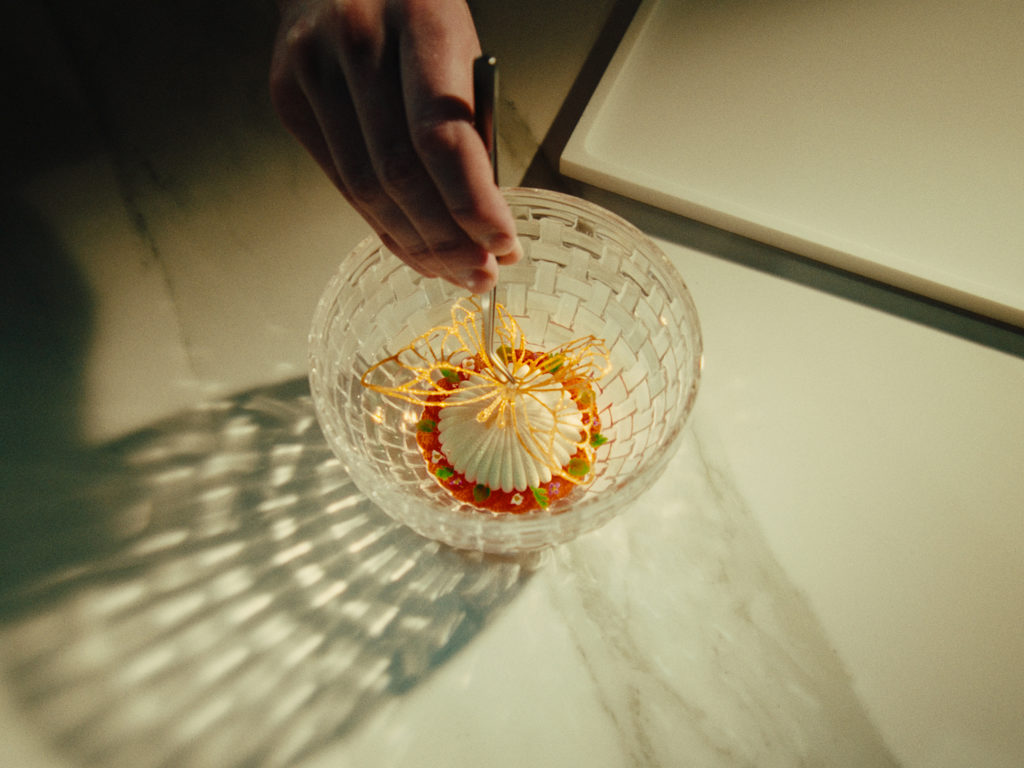
ACT III
Speilsalen’s menu encompasses the finest ingredients from Trøndelag’s oceans, forests and fields. Modern Norwegian cuisine, based on seasonality and rooted in great taste. The chefs take pride in honouring traditional French gastronomy, elevated by modern techniques and artistic presentation.
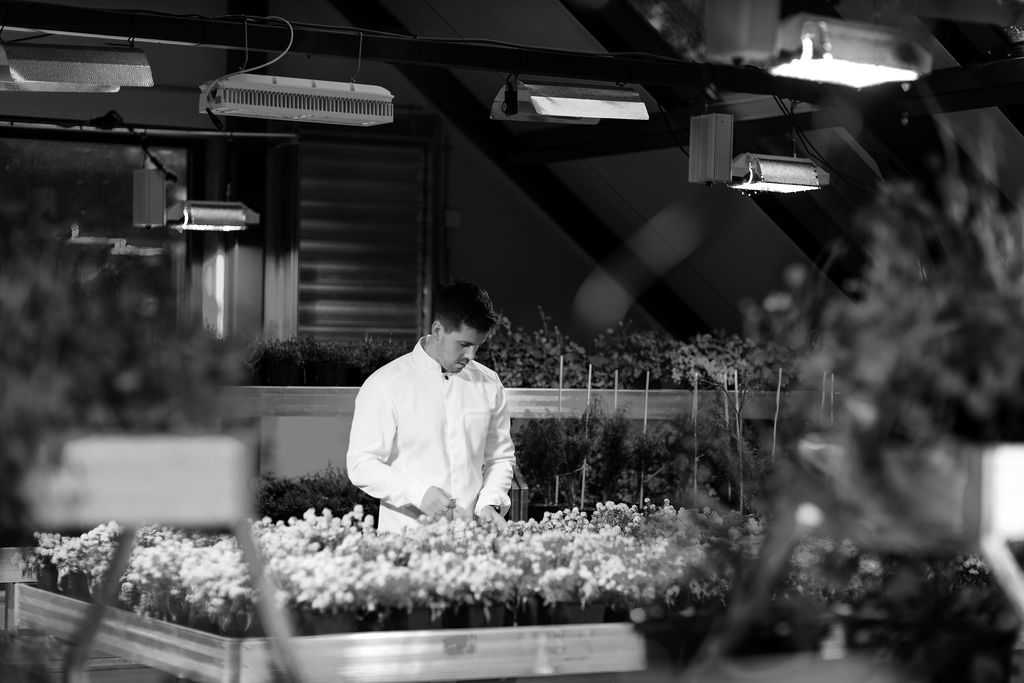
The third act is a perfectly orchestrated trio of desserts which brings joy to the eyes of the beholder. The dishes take their inspiration from the hotel’s kitchen garden, Braattan Gaard, a lakeside farm on the outskirts of the city where the chefs can cultivate and experiment.
Braattan Gaard dates back to 1813. In 1879 it became a retreat for the Trondheim elite; urbanites who would traverse the grand lake by steamboat, to relax outside the hustle and bustle of the city.
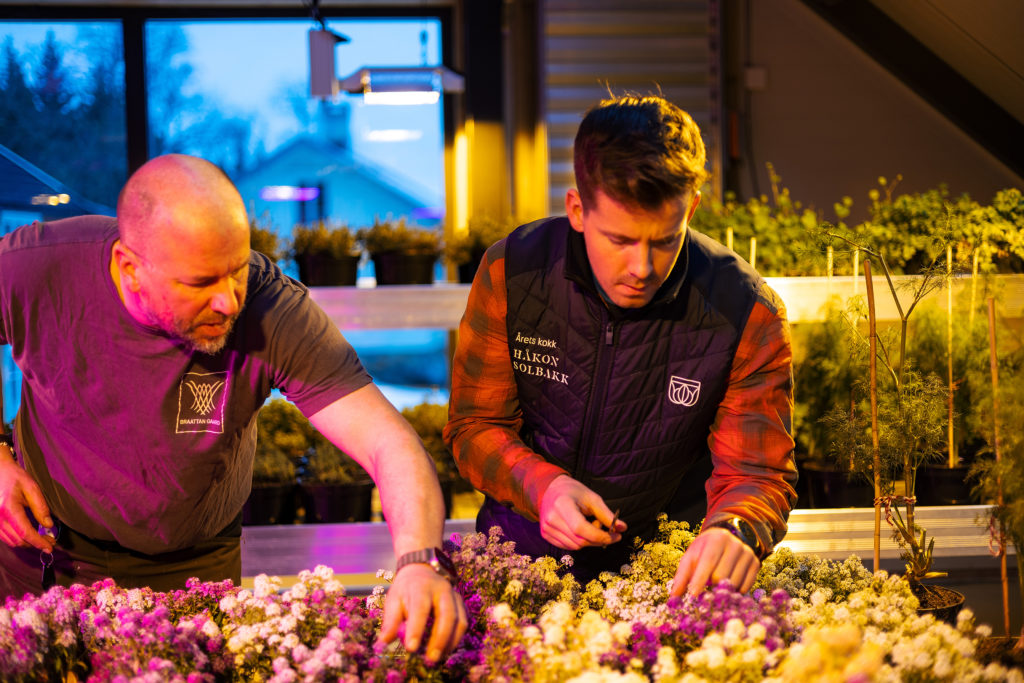
Today, Braattan Gaard is responsible for bringing the best of Norwegian nature in to te city, directly and exclusively to the plates of Britannia. Braattan is run by Kristian Nustad, who bought the farm in 2015, refurbished it and developed an orchard for the production of apple juice. Starting with 10 apple trees in 2016, the orchard now has over 5,000. The farm’s roster has also swollen to include a great deal of other fruit and vegetables, all of which is exported exclusively to Britannia.
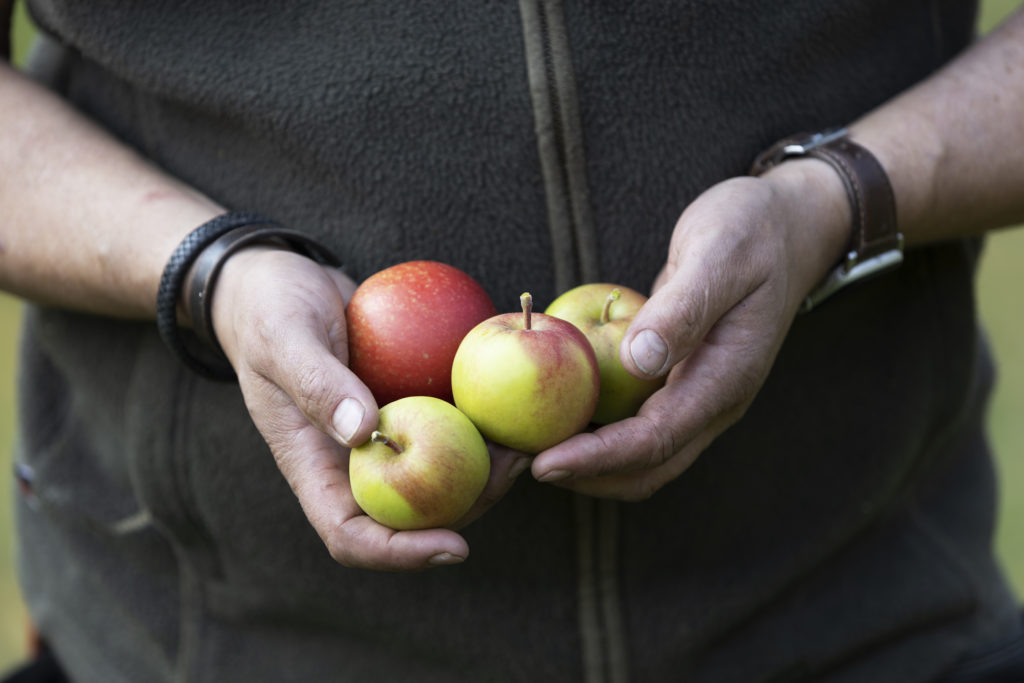

Britannia's Kitchen Garden
Read moreAlthough Braattan Gaard is well above sea level and the temperature plummets in winter, there is a mild climate during autumn because the lake retains the heat of summer, which is ideal for fruit growing. There is also a purpose-built 450m2 greenhouse, which houses a fermentation centre, nursery, juice press, test kitchen and cellar. The farm now grows cabbage, dill, chives, edible flowers, herbs, tagetes, rhubarb, and more, as well as developing new varieties based on the kitchen’s desires and wishes. Honey production, pear trees, plans for cider and calvados, and speciality cheeses being aged in the purpose-built cellar. Asparagus, chanterelles, garlic, ‘black apples’ and elderflower line the shelves, fermenting, distilling and planning ahead for menus later in the year.
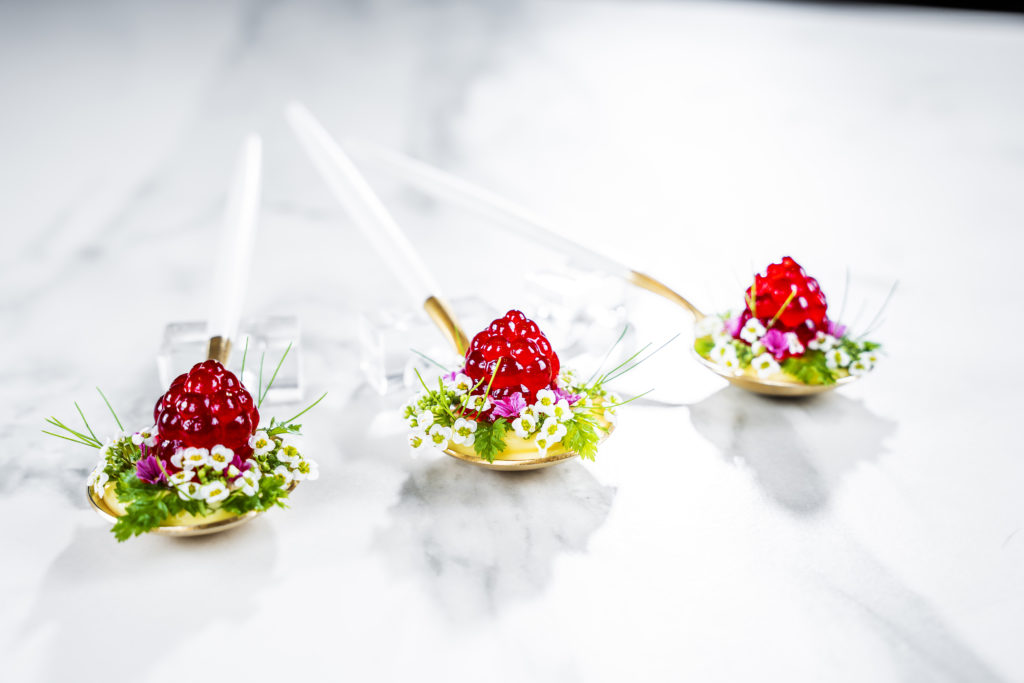
These are the instruments of Speilsalen’s craft, and the collaborative effort allows the kitchen to play homage to the Norwegian garden on their plates.
Act III may be the curtain call for Speilsalen’s symphony, but it is also representative of the restaurant’s plans for tomorrow. A sweet reminder of the tastes yet to come.